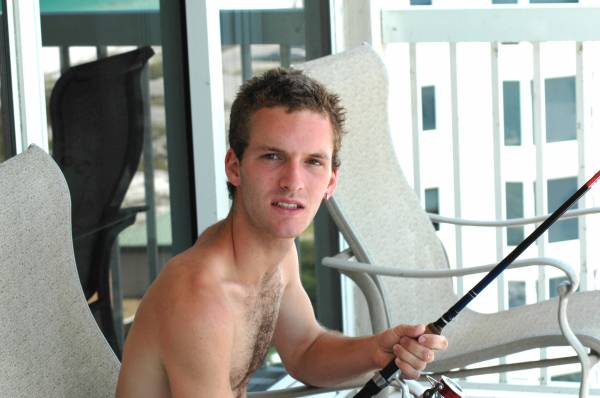In the series of questions below, I asked Erik to share his perspective on common situations related to fear and worry that many people are facing in our world today.
Cindy: Many people spend a lot of time worrying about things for which they have little control or influence. What guidance do you have to stop people from worrying all the time—especially about things for which they have no control?
Erik: First of all, worry is fear-based. So try to let go of that—the fear part. Part of letting go of the fear comes from feeling prepared. Being able to look within yourself and draw upon your own resources, so that you’re not depending on what other people are doing. Since the only things that you can control are within yourself.
Cindy: What guidance do you have for someone who is constantly full of fear? How can a person break the cycle of being afraid of living?
Kent: He said the first thing is just to realize it’s not real. He said he doesn’t want to sound crass…
Erik: …‘cause it’s easy to say when you’re not in it and when you’re from a different perspective. It really boils down to the fact that our reality is an illusion, because it’s our perceptions and it’s what we create. The world around us simply IS, but what it means to us is what we have created. Everything we see, touch, and sense we have to process. So if we’re living in fear, we’re setting up that scenario in our head that basically we aren’t completely surrounded by love and support and so that fear kind of just comes from within whether it’s the self doubt or the feeling of lack or that there’s not enough or that you’re not enough or that you don’t have enough within you to handle something. So it really is just stepping back and re-grounding yourself and re-centering yourself in God’s love and the light of the universe and then just realizing that everything is ok and that you’re stronger than any physical thing around you.
Cindy: But there are times that fear really is based in reality. If someone is in an abusive situation or someone is being physically or verbally attacked or someone is being sued… The fear of those outcomes does have some basis in reality.
Erik: Yea..and I’m not talking about that type of fear. The biological fear that’s why it’s there. It’s there for a reason. To protect you. And that’s why the self-reflection is important. Obviously if somebody is coming after you or scaring you, you need to get out of that situation. I’m talking in general, with people living in fear, on the next level outside of immediate danger. A lot of people live in fear of daily life in and of itself. Fear that they’re going to lose their job, fear that all kinds of things will happen.
Kent: He’s not minimizing those daily fears as not valid.
Erik: When that flag’s coming up, try to get to the bottom of the types of fears that aren’t life/death situations, but those things, but the ones that are constant fears. Try to get to the bottom of what the flag and trigger is trying to tell you. ‘Cause usually that type of fear is pointing to something within yourself that you need to address.
Cindy: … and once you’ve addressed what the root cause of that fear is, what’s the next step?
Erik: The next step is just making a conscious decision. Part of it is being grateful for your mind, your ego, your nervous system doing what it’s supposed to be doing, which is to protect you. But at some point when you determine, “Ok, this isn’t something that I need to be fearful about, this is just something that I need to address or find the strength within myself…” then you need to reframe it in your mind. Instead of being fearful, for example, that you’re going to lose your job and then you find out that by being fearful, it’s shutting you down. You’re not doing your best. Reframe it and say, “I deserve this job and I’m going to do the best that I know how to do.” And you just reset that. So instead of holding onto the fear say, “I’m going to do my best so that they would be stupid to fire me.” What happens if you get fired anyway? That’s something you don’t have control over. If that happens, but you know that you gave it your all, then you know that most likely another better opportunity is going to come right down behind that. And if you’re maintaining that connection with the love and the source of the universe rather than being drug down to the lower vibrations of fear, you’re going to attract what you really want to you.
Cindy: What guidance, Erik, do you have for the person who is struggling financially?
Erik: Think about what your associations are to money. Think about what it really means to you. Part of it could be that you could have some associations that are holding you back, preventing you from seeing or opening up to opportunities that could be around you. Because if you have some preconceived ideas like you can only get money a certain way like a certain type of job or a certain type of thing, you might be closing yourself off to resources you have within you to possibly do other things.
Cindy: But for the person who is sitting at their kitchen table wondering how they’re going to pay their bills, what concrete solutions or suggestions do you have for that person?
Erik: You might have some things around that you don’t really need anymore that you may be able to sell that have value. People have so much stuff. Energetically it’s good for people to kind of cleanse their houses as well as their body. Also ask your spiritual team for help. Take a minute and ask for guidance. Pay attention because things might start popping up in your path.
Cindy: Sometimes when I listen to the news I become frustrated and angry with the state of affairs. How can I stay informed regarding what’s going on in my country and my world without becoming worried, frustrated, angry, depressed—all the negative emotions?
Erik: The main part is not to own it. So part of it is to practice disengaging. It’s actually good practice for protecting your energy. Try to get the news and see it simply for what it IS. Try not to put judgment on it. Although you have to discern what it means to you, see if you can practice doing so without attaching the emotions. And if there is something that gives you a really strong emotion, ask that emotion why it’s there. Because then you can learn about yourself and at least make it constructive. Then with that self reflection you lessen the impact. You can still get informed about what’s going on but not have the huge emotional turmoil attached to it.
Kent Lehman is a Spirit Communicator who works with his wife Cindy Musil to facilitate his communication with Spirit. Learn more about the couple and sign up for their monthly e-newsletter on their website.



